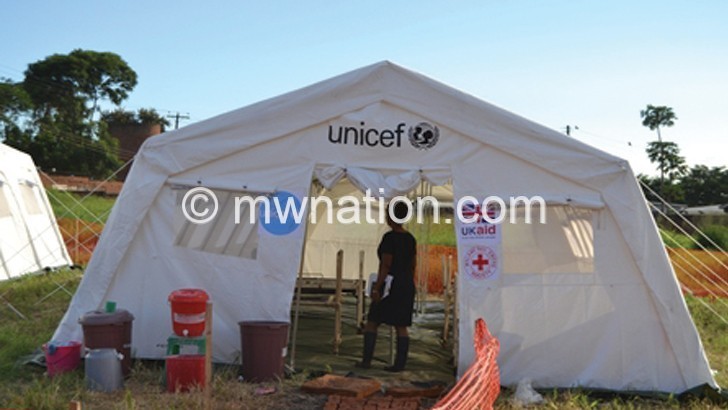Cholera on postcard isles
You have heard no person is an island, but Chief Mkumpha of Likoma District wants policymakers to know “no island is an island”.
The traditional ruler of Likoma and Chizumulu islands in Lake Malawi is convinced the islanders are not immune from disease outbreaks raging on the mainland.
“We may be cut off, but the mainland’s problems are our problems and ours are theirs too. Daily, even as we are speaking, boatloads of people are travelling between Likoma and Nkhata Bay,” he said when asked about the cholera outbreak.
Likoma has registered 11 cases of cholera as the national toll rises to 420.
Nkhata Bay, where the islanders source nearly all their foodstuffs and other essential supplies, has registered 12.
Mkumpha suspects the patients shipped cholera germs from the shoreline district although clinicians say their history says none went to the mainland to buy or sell commodities.
“Likoma and Nkhata Bay are constantly in contact. Save for fish, everything we eat on these islands comes from the mainland. When we get there, we take food and drinks that may be contaminated,” says the chief.
The outbreak, which has affected 11 districts and killed five people, has sent ripples of fear to the islands.
Interestingly, Mkumpha is aware that the fast-killing, infectious disease thrives on breakdowns in water and sanitation which are worsening in Likoma and Chizumulu.
“We are sitting on a ticking bomb. A few years back, we agreed to ensure every household has toilet and basic sanitation facilities, but some lazy, stubborn people still defaecate in water and on the beaches. This is why we are troubled with cholera today,” he says.
The island district is silently backsliding on the pact to end open defaecation in line with the community-led total sanitation policy government adopted in 2008.
According to district water development officer Vincent Chipembere, about 53 percent of households in Likoma had no toilets and sanitation facilities 11 years ago.
In 2007, United Nations Children’s Fund (Unicef), rolled out a project to improve access to water, sanitation and hygiene on the islands.
By 2010, Likoma was on the cusp of being declared open defaecation-free (ODF) as use of latrines and other sanitation facilities doubled to 83 percent.
In fact, Unicef winded up the intervention when the islands received a certificate of sanitation and hygiene as 18 villages and 10 schools were firmly on the path to attain ODF status.
However, the isles failed to attain the coveted sanitation status.
Out of 295 traditional authorities in the country, Mkumpha is among 110 who are struggling to achieve ODF.
Since Unicef intervention phased out, both visitors and residents—especially fishers and fish mongers—can be seen defaecating in the open.
This puts at risk almost the population of almost 10 500 where a modern piped water system that supplies potable water to 89 in every 100 residents.
According to Chipembere, the water system supplies 42 community outlets, 1 346 families and 56 institutions.
“The figures are appreciable and we have campaigns to encourage people to use potable water, but people opt to wash plates and other items in the lake because they feel the cost of tap water is exorbitant,” he says.
However, the lake is at the receiving end of human waste run-off washed from spots where people openly relieve themselves. Besides, houseflies buzz from unsanitary beaches, transmitting cholera germs and other sanitation-related diseases onto fish drying in the sun and other uncovered foodstuffs.
These unsanitary conditions do not only erode the allure of the go-to beaches with rock outcrops, swampy spots and sandy stretches.
It also endangers lives on the stunning tourist and holiday destination, which sits on bedrock.
Its soils vary from sandy to rocky, the reason agriculture is almost nonexistent, stone houses are plentiful and the islanders import bricks.
Around the stone-houses latrines are few and mostly shallow.
“When digging a pit, you will either hit a rock in no time or the walls keep crumbling,” said a Likoma resident.
Population pressure further constricts the limited space for toilets. Among the districts, Likoma had the highest population density of 580 per square kilometre in 2008—almost twice the national estimates of 139.
The worst hit villages are the populous Jalo Village and Ulisa Bay.
“At Jalo, those affected have no toilets and they defaecate on the shores. At Ulisa, toilets are available but fishers defaecate in the lake,” explains Chipembere.
A similar public health crisis is widespread in Karonga, Nkhata Bay and Salima along the shoreline which account for over half of the cholera burden.





